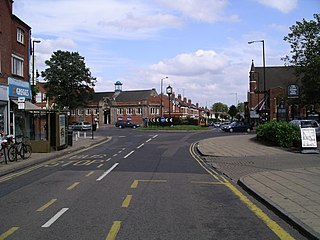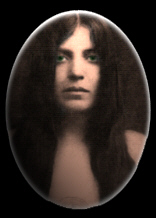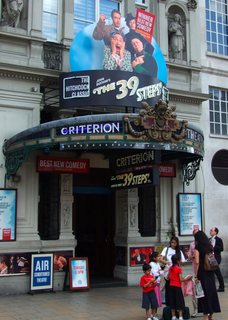
Coventry is a city and metropolitan borough in the West Midlands, England.

Earlsdon is a suburb and electoral ward of Coventry, England. It lies approximately one mile to the southwest of Coventry City Centre. It is the birthplace of aviation pioneer Frank Whittle.
John Richard Filan is an Australian former football player, who is currently assistant manager at League One side Shrewsbury Town.

John Eyre, a pardoned convict, was an early Australian painter and engraver.

Leila Ida Nerissa Bathurst Waddell, also known as Laylah, was a violinist, daughter of Irish immigrants to Australia, David Waddell of Bathurst and Randwick. She became a famed Scarlet Woman of Aleister Crowley, and a powerful historical figure in magick and Thelema in her own right. While Creswell states Leila was part-Maori, he provides no evidence of this; in fact NSW birth deaths and marriages records show she was the granddaughter of John Crane (Coventry) and Janet McKenzie and John Waddell (Monaghan) and Elizabeth McAnally (Monaghan).

The Belgrade Theatre is a live performance venue seating 858 and situated in Coventry, England. It was the first civic theatre to be built after the Second World War in Britain and as such was more than a place of entertainment. It joined the new Coventry Cathedral as a symbol of optimism and culture in one of the largest re-development projects then undertaken, to rebuild the city of Coventry, which had been almost totally destroyed by bombing. The building is now a grade II listed building. In 1963 the Belgrade was registered as a charity by the Charity Commission.
The Belgrade acquired its name in recognition and thanks for a gift of timber from the Yugoslavian capital city of Belgrade, that was used extensively in the construction of the auditorium. Since opening in 1958, the theatre has established itself as a centre for the new and innovative productions.
The Telegraph, Daily Telegraph, Sunday Telegraph and other variant names are popular names for newspapers. Newspapers with these titles include:

The Criterion Theatre is situated in Earlsdon, Coventry, England. It puts on about seven shows a year. The Company has won the Godiva Award for best theatre in the region several times.
The current patrons are Pete Waterman, music producer and railway preservationist, born in Coventry and Ron Cook, stage and screen actor of Thunderbirds and Doctor Who fame, who first acted as an amateur at the Criterion. The Coventry born actor, Sir Nigel Hawthorne (1929–2001), was a former patron.
The 1975 England rugby union tour of Australia was a series of eight matches played by the England national rugby union team in Australia in May and June 1975. England won only four of the eight matches and lost both internationals to Australia. In addition to the two test defeats they also lost to the Sydney and New South Wales Country representative teams.
An opera house is a theatre building used primarily for opera performances.

The Criterion Theatre for a former theatre in Sydney, Australia which was built in 1886 by architect George R Johnson on the south east corner of Pitt and Park streets. The Criterion Theatre, or 'Cri', was Sydney's most famous intimate playhouse at the time. With a Neo-Renaissance exterior and a capacity of approximately 991 seats, the Criterion was used for drama performances for almost 50 years. Closing in 1934, it was demolished to facilitate the widening of Park Street. The Criterion Hotel was built on the narrow strip of land remaining, a legacy of one of Sydney's earliest theatres.
John Denis Gray is an English cricketer, rugby union and professional rugby league footballer who played in the 1970s and 1980s. He played cricket for Warwickshire and Marylebone Cricket Club, as a left-hand bat, and right-arm medium-fast bowler, playing representative rugby union (RU) for England (7s), and at club level for Coventry R.F.C., as a Hooker, i.e. number 2, and representative rugby league (RL) for Great Britain and England, and at club level for Wigan, North Sydney Bears and Manly-Warringah Sea Eagles as a round the corner style goal-kicking prop, hooker, second-row or loose forward, i.e. number 8 or 10, 9, 11 or 12, or 13, during the era of contested scrums.
The Life of Rufus Dawes is a 1911 Australian silent film based on Alfred Dampier's stage adaptation of the novel For the Term of His Natural Life produced by Charles Cozens Spencer.
What Women Suffer is a 1911 Australian silent film directed by Alfred Rolfe. It is a Victorian melodrama, complete with a climax where a little child is placed on a moving saw bench and is considered a lost film.

Olive Dorothea Graeme Wilton (1883–1971) was an English-born stage actor who worked extensively in England and Australia. She came to Australia in 1906 and decided to settle there. She played the title role in the 1910 Australian silent film The Squatter's Daughter. The last years of her life were spent in Tasmania, where she became a noted figure in education, radio and the arts.
Carl Harbord was a British stage, film and television actor.
George W. Anson was a British actor. He specialised in comedy roles, and appeared in New York and Sydney, Australia. He appeared in plays of Shakespeare, particularly in productions by Herbert Beerbohm Tree.
Peter MacGregor Pagan was an Australian-American actor from Sydney best known for his role in The Overlanders (1946).
Chandler ("Channy") Phillip Coventry (1924–1999) was an Australian grazier, art collector, gallerist, art dealer, and art patron and was involved with the establishment of the New England Regional Art Museum.








